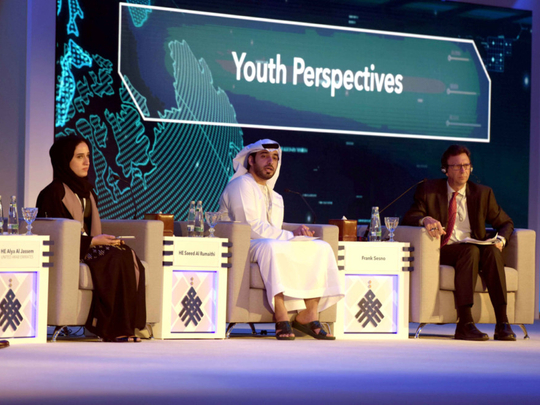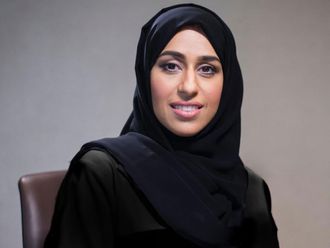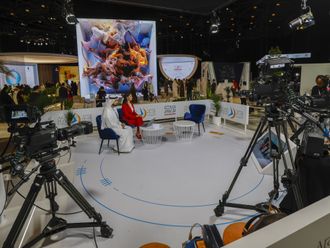
Abu Dhabi: Young people’s participation in politics is critical to promote active citizenship, strengthens social responsibility and enhances democratic processes and institutions, a global parliamentary summit heard on Tuesday.
“As today’s young citizens are tomorrow’s leaders and decision-makers, engaging them in politics is critical to the safeguarding and strengthening of democracy,” Saeed Al Rumaithi, the youngest member of the Federal National Council, told the Global Summit of Women Speakers of Parliament.
Al Rumaithi, who is also President of the Inter-Parliamentary Union’s Forum of Young Parliamentarians, observed a sign of political apathy — young people tend to be less engaged than older generations in voting such as the case in the Brexit voting.
It has been estimated that only 36 per cent of people in the 18–24 age category voted in the EU referendum. 64 per cent of young people did not bother to go to the polling station and place their vote
Al Rumaithi said with an estimated 1.2 billion people aged 15–24 on the planet, justice and democratic legitimacy demand more than a token youth presence in parliament.
People between the ages of 20 and 44 make up 57 per cent of the world’s voting age population but only 26 per cent of the world’s MPs.
Al Rumaithi, an established Emirati social media influencer since 2006 who successfully won a seat at the House solely through his active engagement with the public via social media, said more efforts should be made to empower young people to ensure that they have every opportunity to participate fully in the lives of their societies.
“It is crucial that parliaments around the world work diligently to promote empowerment of young people and their presence in these parliaments,” Al Rumaithi said.
The Global Summit of Women Speakers of Parliament, under the theme ‘United for Shaping the Future;, was held under the patronage of Her Highness Shaikha Fatima Bint Mubarak, President of the General Women’s Union, Supreme President of the Family Development Foundation, and the Supreme President of Council for Motherhood and Childhood.
It is being attended by over 1,000 participants from across the world, including 50 women speakers of Parliament. Other participants include influential global leaders across government, business, industry, and society, a truly distinguished event on the global stage.
Of the 1,000 participants, there were 400 members of parliament representing 50 countries, 100 of whom are from the Arab region. Moreover, the summit includes over 100 prominent influencers and thought-leaders who will contribute immensely to the discussion by providing well-evaluated perspectives.
Al Rumaithi argued that even though youth today are better placed than ever before to take part in and benefit from global development, many young people feel marginalised and excluded.
He added challenges facing young people and their engagement with democracy vary widely from developing to developed countries, suggesting that political leaders must involve youth in democratic decision-making and build partnerships with them.
Speaking of key findings of a recent study by the Inter-Parliamentary Union, Al Rumaithi said young people under 30 make up less than 2 per cent of the world’s MPs and that the best performers in empowering young parliamentarians are Ecuador, Finland, Norway and Sweden — their parliaments are the only ones in the world where more than 10 per cent of members are aged under 30.
Al Rumaithi suggested that laws be changed to lower the voting age to allow young people aged 18 to vote and run for parliaments. “If people as young as 18 can get married and join the military service, so why are they not entitled to vote and run for assemblies,” Al Rumaithi asked.
He said youth quotas, lower eligibility ages, proportional representation and inclusive parliaments are all factors that increase the number of young MPs.
Al Rumaithi said the Inter-Parliamentary Union has been dynamically involved in resolving the issue of youth underrepresentation and under-engagement in formal politics for more than five years. It has succeeded in shifting the terms of the debate away from the question of whether young people’s views are being heard, to whether young people are present in the world’s parliaments. This shift from “consultation” to “representation” is central to the wider re-engagement of young people in politics.












